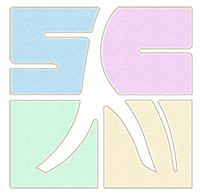
Upon completion of this issue, we wish to express our heartfelt gratitude to two distinguished American scholars, Professor Paula R. Backscheider and Professor Thomas Couser for their responses to our interview questions and the important information contained herein. Paula Backscheider makes comments on the theoretical works recently published in the US on auto/biography. She touches upon several hot topics in the academia, in particular life writing methodology, including relations between biography and the autobiography and relations between the life-writers’ and novel writers' writing strategies. Thomas Couser points out that the boom of memoirs in the US in the past decades boosts American democracy, in particular memoirs by ordinary people. However, this has also brought about a tendency of excessive fictionalizition. According to Couser, memoir writing has, like novel, become a basic program for undergraduates in American universities. All the information draws our attention.
Two articles in the section of Theory Study deserve perusal. Various ideas have previously been proposed on the relations between Chinese biography and other genres. Xu Jie, a scholar of ancient Chinese prose poetry(fu) study, examines the relations between the ancient Chinese genre prose poetry and biography in a fresh light in his “Prose Poetry(fu) and Biography: From the Original Function to the Composition”, illustrating the biographical functions in prose poetry in various aspects. Liang Qingbiao’s “The Return of Subject and the Challenges of Life Writing” is the preface to the Chinese version of The Biographer's Revenge, where in the development of life writing theories in the last three decades is scrutinized and the response is also made to the postmodernist deconstructions to life writing. One may not fully agree with the view of the author, though, Liang’s article is a good guide to achieve a better understanding of contemporary Western life writing theories.
Ye Yonglie and Wang Meng are prominent representatives of contemporary Chinese biography and autobiography respectively. Their works are widely received and reviewed. This issue sees two related studies: Zhang Luosheng’s “On Ye Yonglie’s Biographical literature” and Shi Jianguo’s "The value of The Autobiography of Wang Meng in Chinese literary history”. We believe a great number of readers are enthralled by the two writers. We welcome articles for further in-depth study.
A total of eight articles on autobiography study are published in this issue, including that on Wang Meng mentioned above. Autobiography is a hot topic in the current academia. Once a new field of research emerges, the methodology and perspective are of extreme importance, Autobiography study is no exception. Some essays in this issue reflect on matters of methodology. Cao Lei conducts a research of some important autobiographies home and abroad to examine the “conversion narrative,” its manifestation in different historical and cultural contexts and the reasons behind. Han Bin proposes the concept of “identity pre-setting” in her “The Autobiographer's Preset Identity and the Authenticity in Autobiography” to illustrate what and how the autobiographer narrates in his/her autobiography are pursuant to the preset identity. Bao Lei’s “Autobiography as a Kind of Moral Document” discusses Diane Bjorklund’s conclusions from his spot check of over 10,000 autobiographies published in the US between 1800 and 1980. We hope these articles will arouse more interest in the field.
Ho Yikai’s “A Research on Liu Kang’s Diary” is based on the unpublished diary of Liu Kang, the forerunner of Nanyang style of painting in Singapore. Liu’s diary reveals invaluable records of his life, thoughts and creative work in his later years. We hereby show our courtesy to Mr. Ho and the family of Mr. Liu.
Serious life writing invariably contains the exploration of people, specially the biographical subject. There are two essays in the section "Subject Study." Wu Xiang’s “Ge Gongzhen’s ‘Pink News’” is in pursuit of the truth in the widespread pink news by reporter in the period of Republic of China. Chen Guangjun’s “Zhou Guanghao and the Jian-Yue Barbarian Rebellion” makes clear the great contributions of Zhou Guanghao, a Sichuan official in the Ming Dynasty, in quelling the Jian-Yue barbarian rebellion. Readers may find the two subjects less gripping, but the two scholars demonstrate careful and meticulous textual research, which is necessary in life writing and research.
The two book reviews are thought-provoking. To the extent that biography for Shakespeare is one of the most enthralling and disputed topic in the Western cultural history, Yuan Qi’s “An Innovation or a Deconstruction of Life Writing?” is a poignant criticism of Will in the World by Stephen Greenblatt, the representative of New Historicism in the US and highly acclaimed Shakespearean scholar. Yuan argues that this biography is based on imaginations and speculations. He identifies it as a deconstruction rather than an innovation of life writing. Zhou Lingfeng’s “Authenticity in Biography and Other Issues” reviews the Chinese biographer Jia Yinghua’s How to Write a Successful Biography. In addition to his positive comment on this first theoretical work written by a Chinese life writer, Zhou also raises an issue, i.e. in life writing, the biographer’s historical integrity and insights carry equal weights, if not more than authenticity or the job of collecting of historical materials.
Zhang Changhua is a biographer who writes about celebrities in the Republican period. In the section “From the Life Writer,” he elucidates his writing purposes in a familiar easy tone he exploits in his biography sketches. After reading the above theory discourse, you will feel delighted to meet his exposition. We appreciate articles of a great variety of styles
MLWS convened The Youth Forum on Issues in Modern Life Writing and Studies in November, 2014. Twenty-eight young scholars from over ten universities in East China attended the forum upon invitations. The result of the forum reveals in Chen Liangliang’s review essay, which manifests that the young scholars' acute insights, innovative efforts and enormous potentials are more than apparent.
February 2015